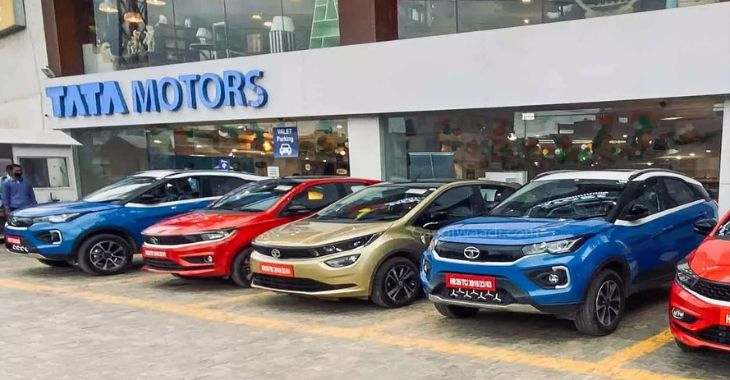Tata Motors witnessed a 6% surge in its shares, reaching a 52-week high of Rs 802.6 in Friday’s trade on the NSE, supported by heavy trading volumes. The company saw a turnover of 2,11,18,340 equity shares worth Rs 1,655.5 crore. This uptick was fueled by the government’s initiative to replace 800,000 diesel buses, over a third of the total buses in the country, with electric ones in the next seven years.
The move aims not only to reduce vehicular emissions but also to stimulate investments in the electric vehicle (EV) ecosystem in India. The replacement plan includes 200,000 electric buses for state transport undertakings (STUs), 550,000 for private operators, and 50,000 for schools and employee transportation by 2030, according to government sources.
This plan, designed to electrify public transport systems, is expected to be a key component of the Faster Adoption and Manufacturing of Electric Vehicles (FAME) incentive program and position India as a global manufacturing hub for EVs. “Replacing diesel buses with electric ones will not only address environmental concerns but also help create an ecosystem for electric vehicles,” stated a source familiar with the matter.
The move is anticipated to accelerate the establishment of a widespread charging infrastructure, attract investments, achieve economies of scale to reduce costs, and generate employment opportunities in the manufacturing sector. At 11.19 am, Tata Motors’ shares were trading 5.5% higher at Rs 796 on the BSE. Year-to-date, the stock has surged by 101%, doubling investors’ wealth.
Industry estimates suggest that an investment of Rs 1.2-1.5 lakh crore will be required to deploy 100,000 electric buses in India at current prices. The government is in the process of consulting stakeholders to finalize the details of the scheme, which is expected to be announced next fiscal year.
Discussions among top government officials and representatives from multilateral institutions have focused on aggregating and converting the demand, with an emphasis on large procurement tenders to drive down costs and facilitate the distribution of vehicles to existing transporters. Currently, around 4,000 electric buses are operational in India, compared to 2.3 million diesel and CNG buses.
Saurabh Kumar, Vice President of the Global Energy Alliance for People and Planet (GEAPP) in India, highlighted the significance of converting private buses to electric in India’s efforts to decarbonize. This development coincides with the announcement by the Indian government and the US at the COP28 Summit in Dubai to establish a joint payment security mechanism (PSM) for deploying 38,000 electric buses in India to achieve net-zero targets.



![[CITYPNG.COM]White Google Play PlayStore Logo – 1500×1500](https://startupnews.fyi/wp-content/uploads/2025/08/CITYPNG.COMWhite-Google-Play-PlayStore-Logo-1500x1500-1-630x630.png)